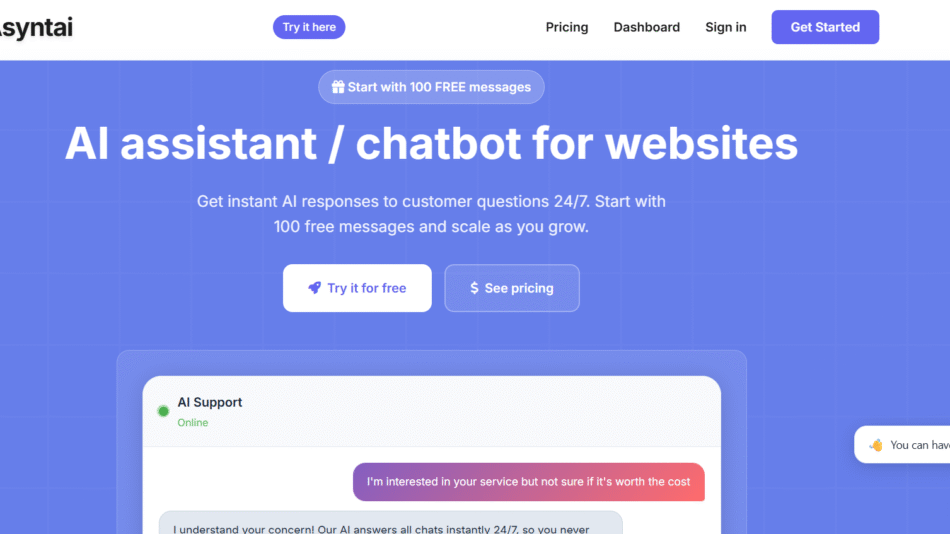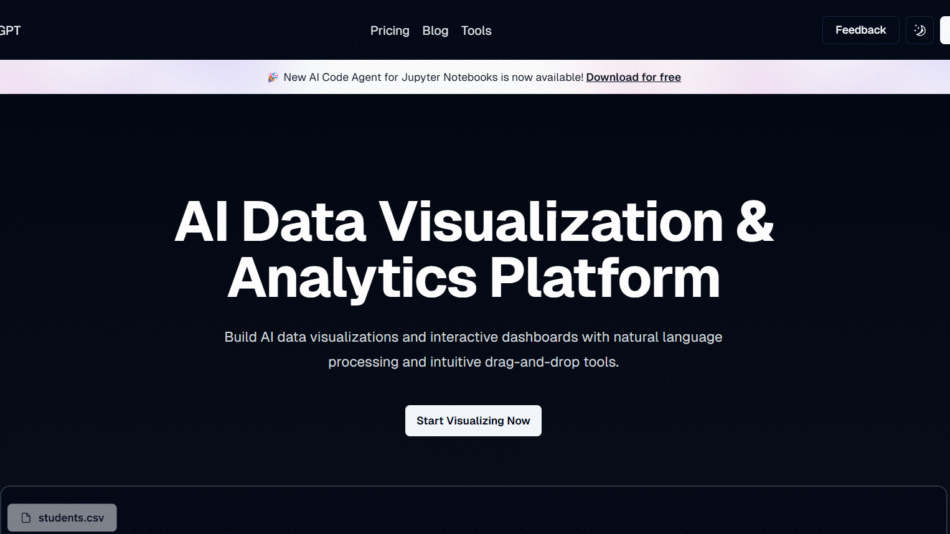LangChain is an open-source framework that simplifies the development and deployment of applications powered by large language models (LLMs). It enables developers to create AI-driven workflows with memory, reasoning, and external data integration. With its modular approach, LangChain supports complex AI systems, including chatbots, research assistants, and automated agents.
Features:
- Modular Architecture:Composable framework for integrating LLMs, APIs, and tools.
- LangGraph:Supports agent workflows, human-in-the-loop processes, multi-agent collaboration, and time-travel capabilities.
- LangSmith:Offers debugging, collaboration, testing, and monitoring to enhance AI application development.
- Memory and Context Management:Stores conversation history for enhanced responses.
- Multi-LLM Support:Compatible with OpenAI, Hugging Face, and other model providers.
- External Data Augmentation:Fetches real-time data from APIs, databases, and documents.
- Scalability:Supports both cloud and local deployment.
How It Works:
- Model Selection:Choose an LLM provider (OpenAI, Hugging Face, etc.).
- Workflow Design:Utilize LangGraph to define AI agent behaviors and reasoning steps.
- Memory & Context Integration:Retain past conversations for continuity.
- Data Source Connection:Fetch data from APIs, PDFs, and databases.
- Monitoring & Debugging:Use LangSmith for performance evaluation and debugging.
- Deployment & Scaling:Run applications on cloud or local servers for optimal efficiency.
Use Cases:
- Conversational AI:Chatbots and virtual assistants with memory and reasoning capabilities.
- Automated Research Assistants:AI tools for document retrieval, summarization, and analysis.
- AI-Powered Customer Support:Intelligent virtual agents with contextual understanding.
- Business Intelligence:AI-driven insights from structured and unstructured data.
- Legal & Compliance Automation:Document review and compliance management powered by LLMs.
Pricing:
LangChain is open-source and free to use. However, costs may arise based on the LLMs, cloud infrastructure, or APIs used within LangChain-powered applications.
Strengths:
- Open-source with an active developer community.
- Highly customizable with modular design.
- Supports multiple LLM providers and external data integrations.
- Tools like LangGraph and LangSmith enhance AI reasoning and debugging.
Drawbacks:
- Requires programming expertise in Python or JavaScript.
- Complex workflows may require extensive configuration.
- Performance is dependent on the integrated LLMs and APIs.
Comparison with Other Platforms:
LangChain stands out for its modularity and comprehensive tooling compared to other AI development frameworks. Unlike OpenAI’s API, which primarily offers direct LLM access, LangChain allows multi-step reasoning, memory integration, and external data augmentation. Compared to Auto-GPT, LangChain provides more flexibility in building AI workflows rather than relying on fully autonomous execution. Unlike Rasa, which is designed for rule-based conversational AI, LangChain excels in generative AI applications that require complex reasoning and data-driven interactions.
Customer Reviews and Testimonials:
Developers and AI researchers highly value LangChain for its flexibility and rich feature set. It is widely used in industries such as finance, healthcare, and enterprise AI solutions to build scalable and intelligent applications.
Conclusion:
LangChain is a powerful AI development framework that enables the creation of intelligent, memory-enhanced, and reasoning-driven applications. With tools like LangGraph and LangSmith, it simplifies LLM-based AI development, making it an excellent choice for developers looking to build complex AI solutions.















